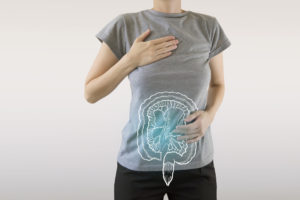 You might not want to think about your colon health. It surely isn’t the most appealing body part, but hey, it needs a little love too. And if you’re looking for a little something to do these days, shooting for a healthy colon can certainly be worthwhile.
You might not want to think about your colon health. It surely isn’t the most appealing body part, but hey, it needs a little love too. And if you’re looking for a little something to do these days, shooting for a healthy colon can certainly be worthwhile.
Your colon plays a very important role in our health. Some even call it “the body’s clean-up crew.” After food goes through your intestine and all of its vitamins and minerals are extracted, it moves to the colon, where water and bacteria break it down for removal.
Advertisement
Improving colon health can be pretty easy. Most of the things you can do to improve colon health can be done from self-isolation.
One thing to do is start moving more. Your at-home exercise program can benefit your colon just as much as your heart. Research has found that adding just two hours of sitting time per day can increase the risk for major colon sickness by about 8%.
There are also dietary measures you can take, and the foods that may work best can all be easily stored in a pantry or freezer.
Fiber, vitamin C, vitamin D, and calcium all play a role in a healthier colon.
Fiber promotes better digestion and healthier bacterial populations. Calcium and vitamin D levels are associated with lower risk for serious colon diseases, and vitamin C is a powerful antioxidant that can fight systemic inflammation.
Five foods that you can include in your daily routine to promote a healthier colon and lower your risk of disease include:
• Broccoli: High in fiber, calcium, and vitamin C.
• Dark leafy greens: Rich source of fiber and calcium. Vitamin D is also found in some leafy greens.
• Milk: A great source of calcium and a source of vitamin D.
• Raspberries: High in antioxidants, fiber, and vitamin C.
• Oatmeal: Terrific source of both soluble and insoluble fiber to optimize digestion.
Advertisement
Aiming for 25-35 grams of fiber per day is ideal, and you can get it from eating an array of fruits, vegetables, legumes, and whole grains. Calcium is found in dairy and several fortified foods and beverages. Vitamin C is in almost every fruit or vegetable.
One thing to keep in mind when switching to a colon-healthy high-fiber and calcium diet is that it can cause temporary indigestion. This will pass. It just takes a little bit of time, maybe a week or two, for your body to adjust.
If you’re self-isolating, there might be no better opportunity to prioritize colon health!
